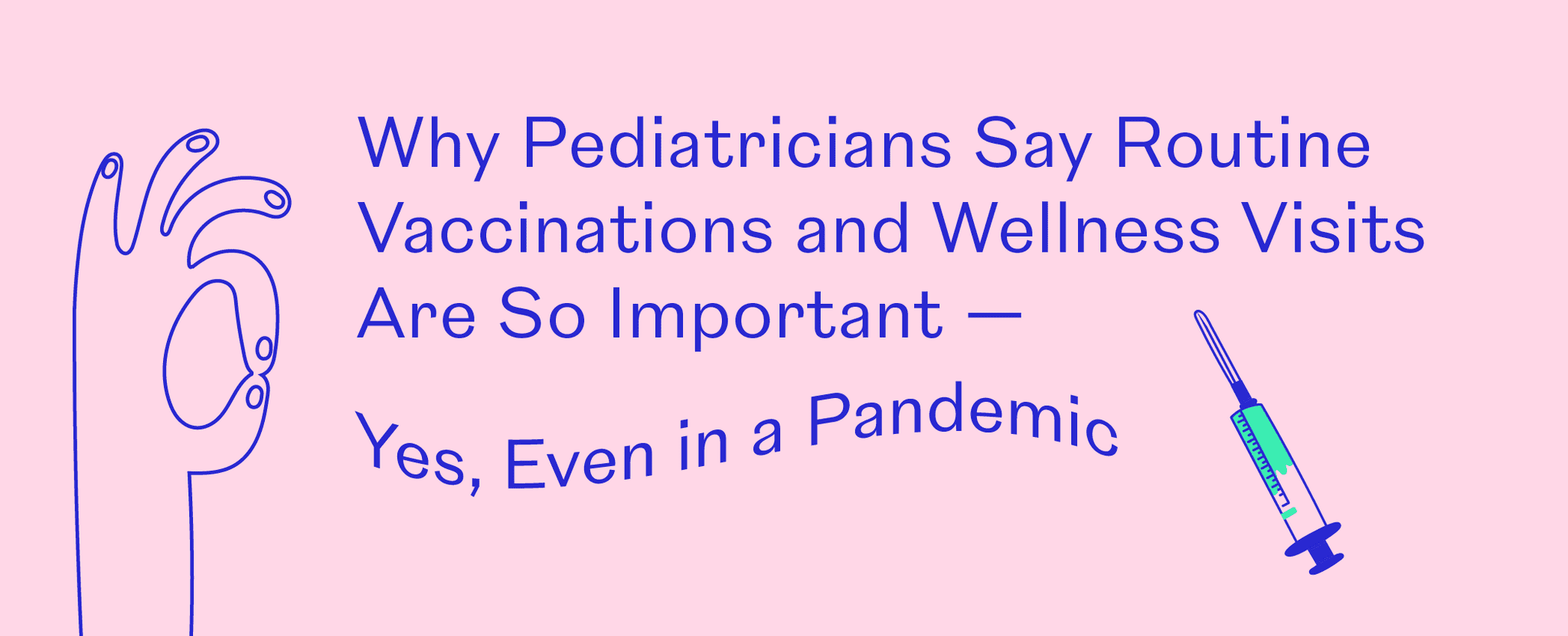
Taking Your Child to the Pediatrician During the Pandemic
Why Pediatricians Say Routine Vaccinations and Wellness Visits Are So Important — Yes, Even in a Pandemic

During the pandemic, parents have to weigh the risks of every single outing with their children. Playdates in the park, sports practices, family vacations, summer camps — all have either been postponed, modified, or cancelled. Even errands you wouldn't have thought twice about now seem suspect.
Still, there's one category of appointment you shouldn't simply cancel: your children's routine doctor's visits. Even healthy children need to see their pediatrician regularly, according to Dr. David Wanderman, a pediatrician at Stanford Children's Health Peninsula Pediatric Medical Group. Dr. Wanderman has two children of his own, so he understands the desire to keep them safe — but stressed that avoiding the doctor is not the answer.
Things have changed drastically at Dr. Wanderman's practice over the past few months, and as of July, his office was back to seeing patients of all ages — with some major changes to standard operating procedures, of course. We caught up with him to find out how his practice is handling the COVID-19 pandemic, as well as what parents need to know about taking their children to the pediatrician right now.
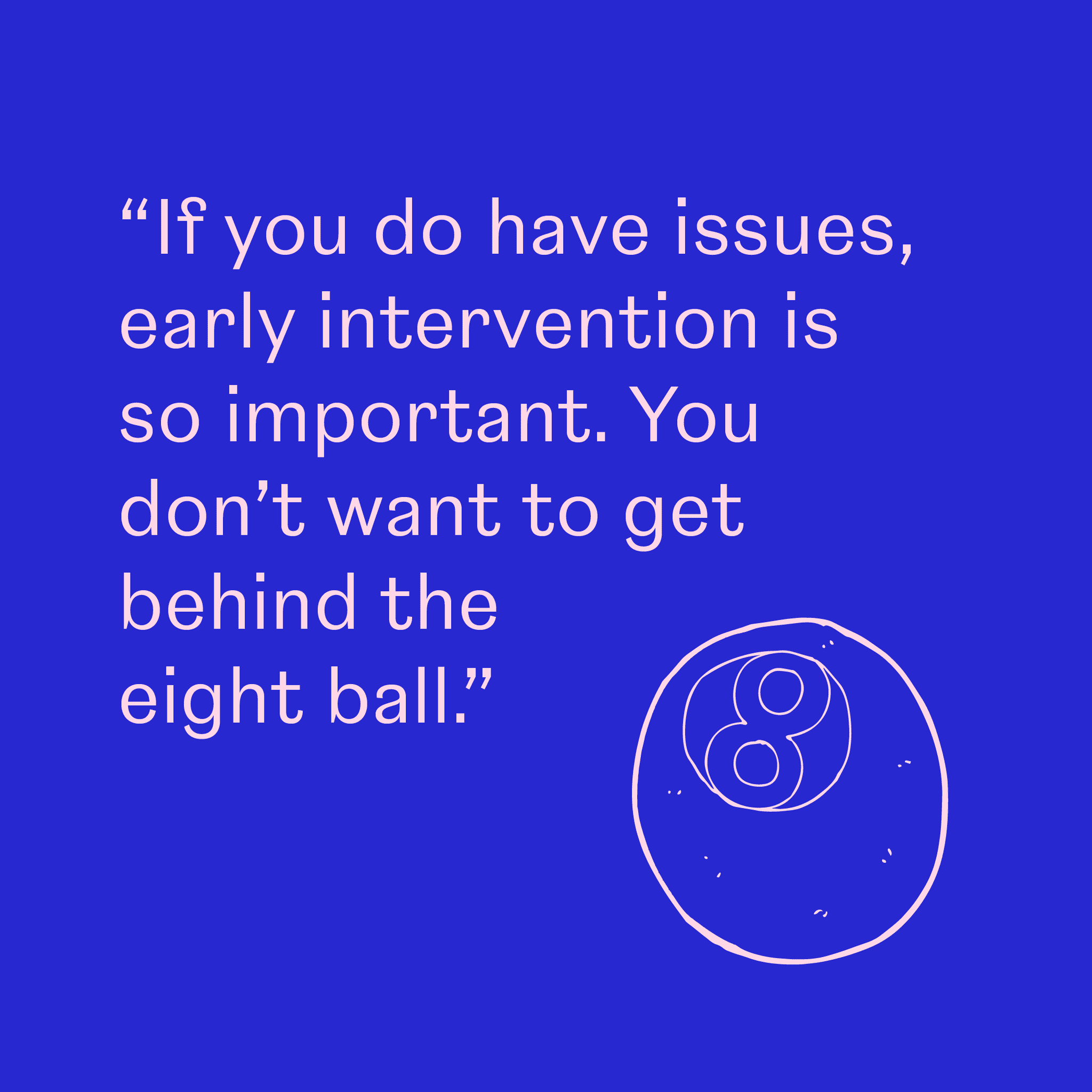
One of the biggest challenges Dr. Wanderman is facing right now isn't getting patients to wear masks, but keeping regular wellness checks and vaccination appointments on the books. While some parents might be understandably concerned about taking their children into a public space, Dr. Wanderman stressed how important it is to stay up to date on vaccinations.
"Those early vaccine visits under a year in particular are really crucial," he explained. "You want to get that protection on board early." At 2 months, 4 months, and 6 months old, for instance, infants get vaccinated for whooping cough — a disease that can send a baby to the hospital if they're not vaccinated. Vaccines that protect against measles, meningitis, and other serious infections also come at a young age.
Dr. Wanderman explained that many of these vaccines are so effective that parents don't realize just how important they really are; since they never have to worry about some of these diseases, it's easy to forget about the vaccine. Beyond the danger to the child, skipping vaccinations also hurts the overall herd immunity in a community, potentially leading to larger-scale outbreaks. "There are some early studies saying that vaccine rates dipped during the shelter-in-place orders, and we want to catch up a little bit and get those kids back in," Dr. Wanderman explained.
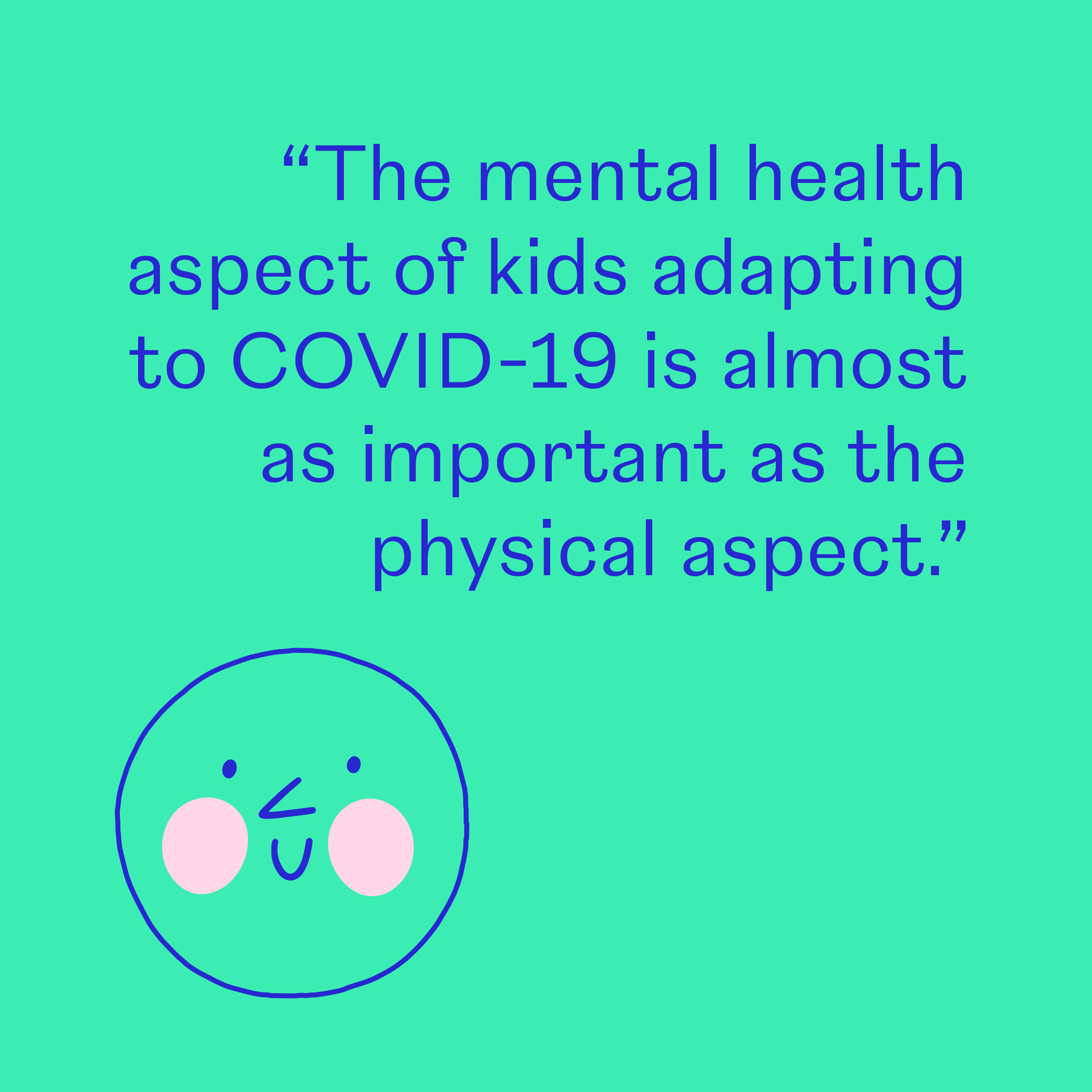
Of course, staying current on your child's vaccinations isn't the only reason to keep your regular pediatrician's appointments. Dr. Wanderman said that checking in on a child's overall well-being is just as important as checking their height, weight, and physical health. "You want to look at language development, motor development, and social development, because if you do have issues, early intervention is so important," he said. "You don't want to get behind the eight ball on that."
During the pandemic, Dr. Wanderman is particularly concerned with his patients' social development. These days, he's making a point to find out whether the children he sees are staying in touch with their friends, how they're feeling about being at home, and even how much media they're consuming. "The mental health aspect of kids adapting to COVID-19 is almost as important as the physical aspect," he said.
Dr. Wanderman's practice has also had to adapt to the new reality. First and foremost, they require everyone to wear a mask, and have medical-grade masks on hand for patients and parents during their visit. Only one parent can accompany each child, and siblings are requested to stay home. Temperature checks are also required, and the waiting room has been reconfigured to accommodate social distancing and shared toys have been removed.
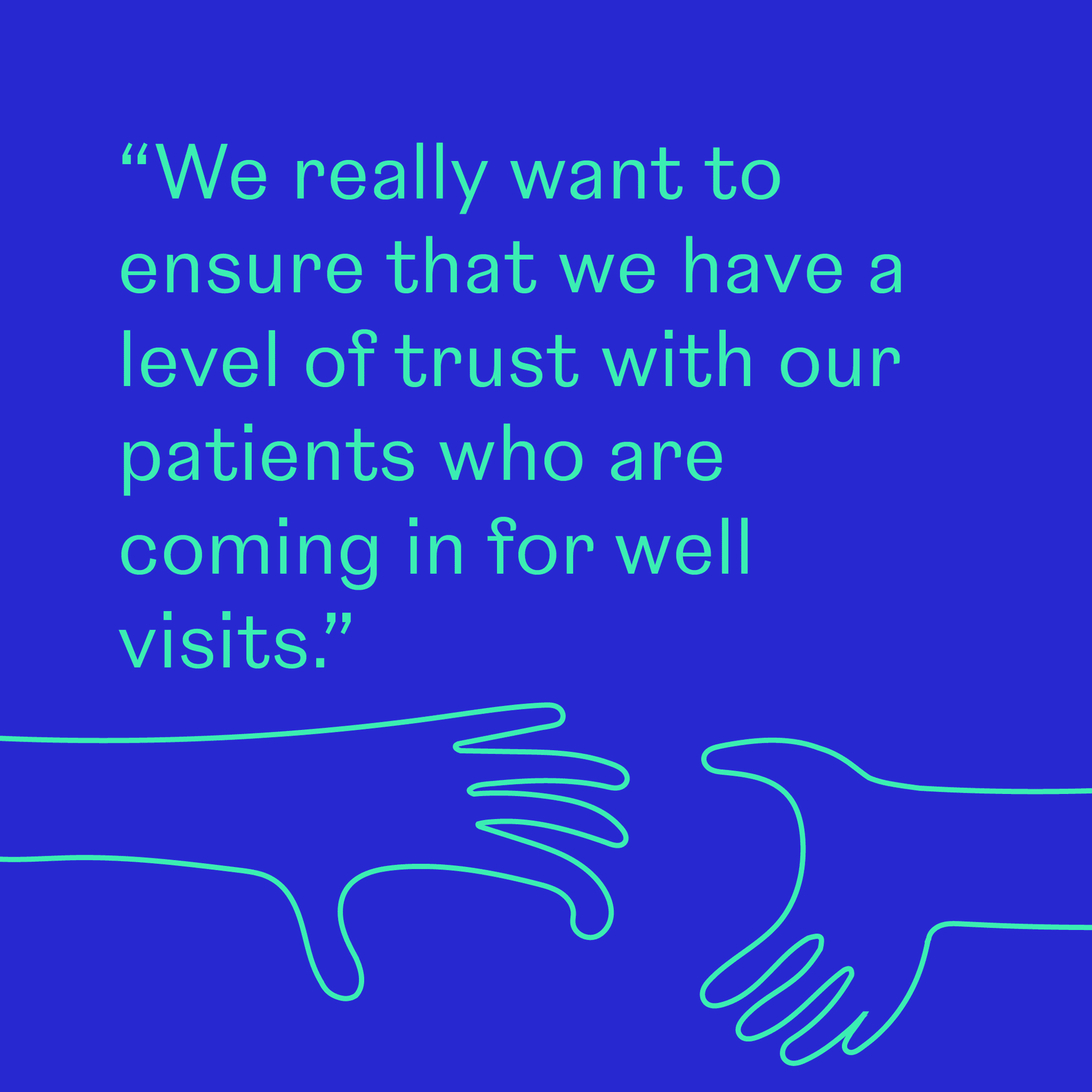
Creative scheduling is also a key part of many practices. Dr. Wanderman, for example, sees healthy children in the morning on one side of the office and sick children at the end of the day in another area in order to prevent overlap in shared spaces. Patients and parents also have to answer a series of prescreening questions about recent travel, potential COVID-19 exposure, and their current symptoms in advance, then again when they arrive for their appointment. If anyone reports a symptom that could be caused by COVID-19, Dr. Wanderman asks them to reschedule. "If you're coming into the office and somebody else was coming in with a cough, you wouldn't want them in the office," he said.
Virtual visits also come in handy. If a child does have a cough, sniffles, or other symptoms, Dr. Wanderman can talk to them virtually to determine a way to treat their symptoms and decide whether or not he needs to see them in-person — or even send them for further testing, if needed. "We don't do COVID-19 testing in the office, but being part of Stanford, we are lucky to have the Stanford resources so we can schedule a drive-through testing visit if warranted," he said.
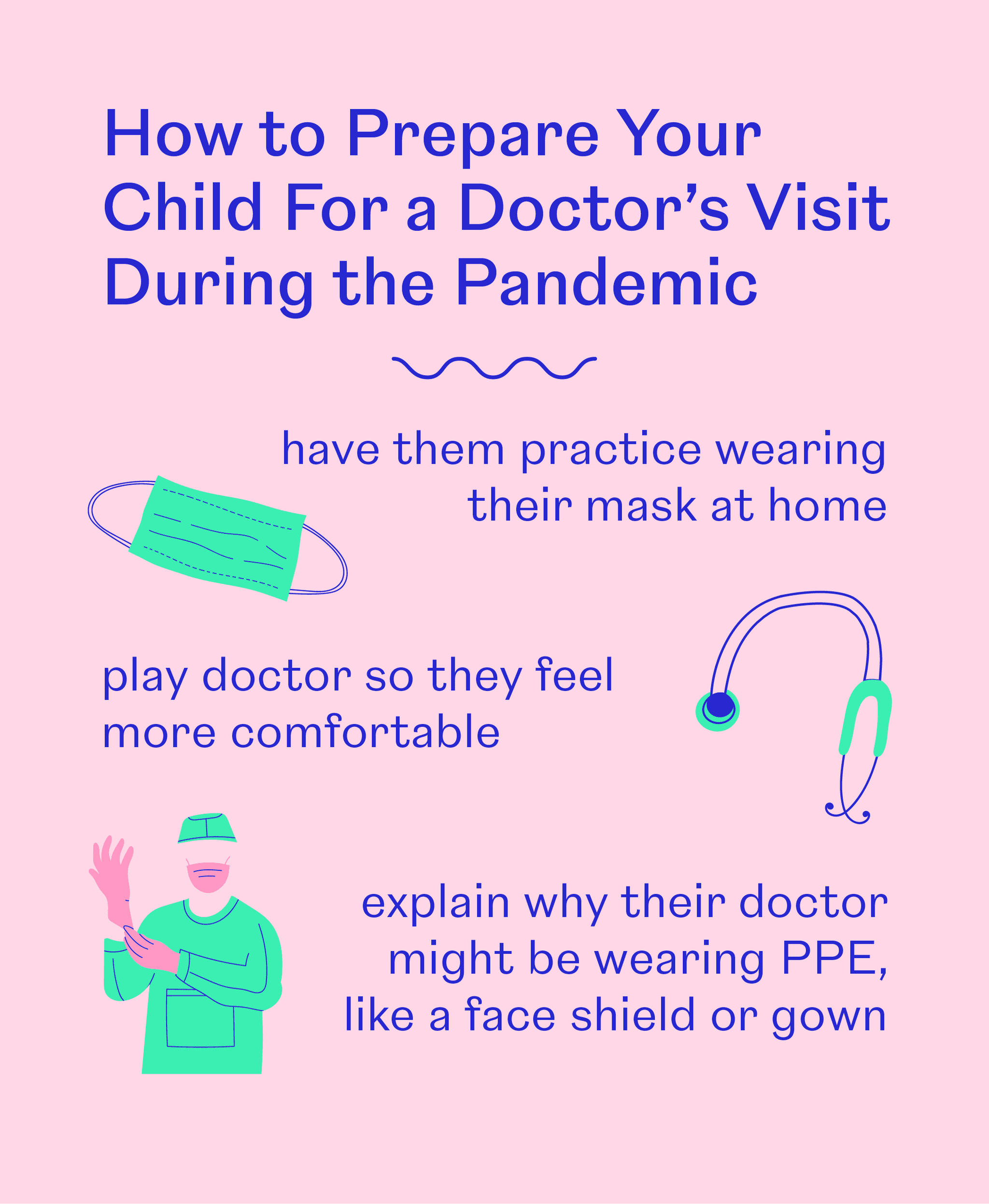
Dr. Wanderman acknowledged that all of these extra precautions can be scary for his patients. He recommended that parents spend some time preparing their children before arriving at the office. First, let them know that their doctor might be dressed a little differently. "In a normal exam visit, we will wear a typical surgical mask and a face shield," Dr. Wanderman said. "For a sick visit, then it's going to be an N95 mask, a face shield, a head covering, and a gown." If your child is anxious about their appointment, you might also try playing doctor at home to make them feel more comfortable. Dr. Wanderman also recommended having your child practice wearing a face mask at home before you have to go out in public.
Overall, Dr. Wanderman said the best thing parents can do during the pandemic is practice patience and understanding. It might be a little tougher to schedule an appointment, and the process might seem a little less convenient, but it's all in the service of keeping everyone safe. "We really want to ensure that we have a level of trust with our patients who are coming in for well visits," he said.